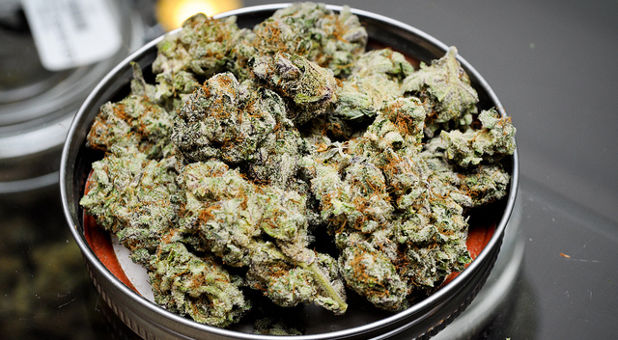Mainstream Media Reveals Deceptive Truth About Medical Marijuana
With medical marijuana now legal in nearly half of U.S. states as well as Washington, D.C., little remains known about the long-term benefits of the drug, while evidence of its negative effects is plentiful.
According to a recent Forbes.com article, the odds do not appear to be in marijuana’s favor. “The science so far doesn’t look good,” the article states. “At this point, despite thousands of studies, there is very little evidence that cannabis is good for any specific medical condition.”
Dr. Karl Benzio, founder, executive director and a psychiatrist at Lighthouse Network, an addiction and mental health counseling helpline, says that while marijuana may cause a temporary reprieve from symptoms, it’s simply a Band-Aid for most conditions, and the harmful effects can last a lifetime.
“Presently, marijuana has no real scientifically strong data supporting its benefits, but there is much evidence of its damages,” Benzio said. “At the same time, although other medications such as narcotic painkillers and benzodiazepines, which include Xanax, provide some significant benefits, they are also addicting and cause short-term and long-term cognitive and mood complications.”
A recent Newsmax Health article noted that many physicians believe prescription drugs—including some that are commonly prescribed for things including anxiety and depression—have adverse effects including memory loss, mental confusion and dementia. This has led to many individuals being wrongly diagnosed with Alzheimer’s disease, only for physicians to learn through post-mortem autopsies that the individuals did not have this disease at all.
“The growing reliance on addiction-forming medications to treat symptoms is of great concern,” Benzio continued. “In reality, medications that have been scientifically proven to be beneficial are simply Band-Aids and should be used only for a brief time for symptom relief while working on longer-term cures. And so-called medications such as marijuana, which have been proven to be detrimental with no demonstrated concomitant benefits, should be avoided altogether.
“It’s important to remember that any drug we put into our system has the potential to affect our brain chemistry, and when these drugs are habit forming, they may eventually lead to a desire for stronger, more potent drugs. The cycle is vicious, and the result is never positive. Medications to treat things like anxiety, depression and panic attacks can be beneficial for the short-term, but true recovery requires both psychological and spiritual treatment. This is the only approach that brings lasting healing with no short-term or long-term downsides.”
Those who have become addicted to prescription medications, or family members of individuals addicted to prescription meds, may feel overwhelmed, but help is available. And, Benzio adds, the most effective help for long-term recovery is a bio-psycho-spiritual approach to acute treatment and to longer-term preventive services that teach biblical decision-making skills to people of all ages, which will have a long-term transformational impact.














































